Why Transition from Traditional Real Estate to Investment-Focused Real Estate?
In the ever-evolving world of real estate, agents are constantly seeking ways to set themselves apart. With the market shifting and buyers becoming more investment-savvy, traditional real estate agents have a golden opportunity to pivot into investment-focused real estate. Here’s why making that transition could be the smartest move you’ll ever make.
1. Expanding Your Client Base
Traditional real estate agents primarily work with homeowners looking to buy or sell a property for personal use. While this market is lucrative, it can be limited in scope. By focusing on real estate investments, you unlock access to a broader audience, including seasoned investors, first-time investors, and those looking to diversify their portfolios.
These clients aren't just one-time buyers—they tend to be repeat customers who are always on the lookout for new opportunities. By positioning yourself as an investor agent, you can foster long-term relationships with clients who will rely on your expertise again and again.
2. Increased Earnings Potential
Investment-focused real estate is inherently more lucrative. Investors often deal with higher-value properties and buy in volume, meaning larger commissions and more frequent transactions. As you help investors build wealth through real estate, you can do the same for yourself by tapping into higher-earning potential compared to traditional sales.
Additionally, investment properties often come with a sense of urgency and efficiency. Investors want to close deals quickly to maximize their return on investment (ROI). This faster transaction pace can mean more deals in less time.
3. Become a Trusted Advisor
When you specialize in investment real estate, you become more than just an agent—you become a trusted advisor. Investors depend on your insights into market trends, property potential, and financial strategies. This gives you an opportunity to provide more value to your clients and deepen your expertise in areas such as cash flow, ROI, cap rates, and long-term growth.
The shift into investment real estate allows you to differentiate yourself in a crowded market. When you can offer expertise that helps clients generate wealth, they see you as an essential part of their success.
4. Stay Ahead of Market Trends
The real estate market is cyclical, and homebuyers’ motivations can change with interest rates, market conditions, and economic factors. Investment-focused real estate, however, tends to be more resilient because investors adapt to market cycles by adjusting their strategies. Whether it’s a booming market or a downturn, there are always opportunities for investors.
By transitioning into the investment side of real estate, you will stay ahead of these trends and develop a deeper understanding of the overall market. This knowledge can give you an edge over traditional agents and allow you to pivot and capitalize on opportunities that might otherwise go unnoticed.
5. Align Your Career with Financial Freedom
One of the key motivations for real estate agents to transition into investment-focused real estate is personal growth. Many investment agents not only help their clients but also invest in properties themselves. By learning the ins and outs of real estate investment, you can start building your own portfolio and working towards financial freedom.
Traditional agents often sell properties without reaping the long-term benefits of ownership. Transitioning to an investment-focused approach allows you to make smarter personal financial decisions while simultaneously growing your business.
6. Leverage Investor-Specific Tools and Marketing
As an investment-focused real estate agent, you'll have access to a range of tools and strategies tailored for investors. These might include financial modeling software, investment calculators, and exclusive listings. You can also tailor your marketing efforts to target investors, positioning yourself as the go-to expert in your area.
With the right systems in place, you can offer personalized guidance and create value for your clients in ways that traditional agents can’t. Whether it’s finding under-market deals or helping clients structure their financing, the specialized knowledge you gain will make you indispensable.
7. Future-Proof Your Career
Real estate investment is not a fleeting trend—it’s a time-tested strategy for building wealth. By transitioning to an investment-focused career, you're not only diversifying your income streams but also future-proofing your career. As real estate remains one of the most stable and reliable forms of investment, your expertise will always be in demand.
In contrast, the traditional real estate market can be affected by fluctuating interest rates, local economic factors, and seasonal trends. Investment-focused agents, on the other hand, can offer services that transcend these market shifts, providing long-term career stability.
Conclusion: Embrace the Shift
Transitioning from traditional real estate to investment-focused real estate offers immense benefits, from expanding your client base to increasing your income potential. This shift allows you to provide more value, secure long-term relationships, and build a career that aligns with financial freedom—for both you and your clients.
As the market evolves, so must real estate agents. By becoming an expert in real estate investing, you position yourself as a forward-thinking, valuable advisor in a thriving sector of the market. Now is the perfect time to make the transition and capitalize on the growing demand for investment-focused real estate professionals.

